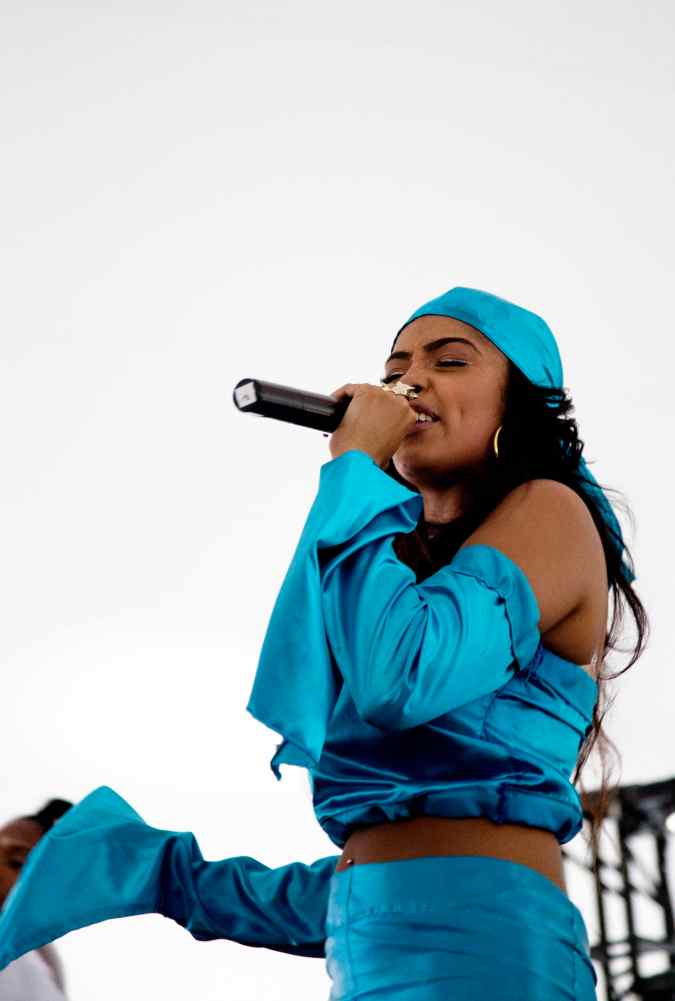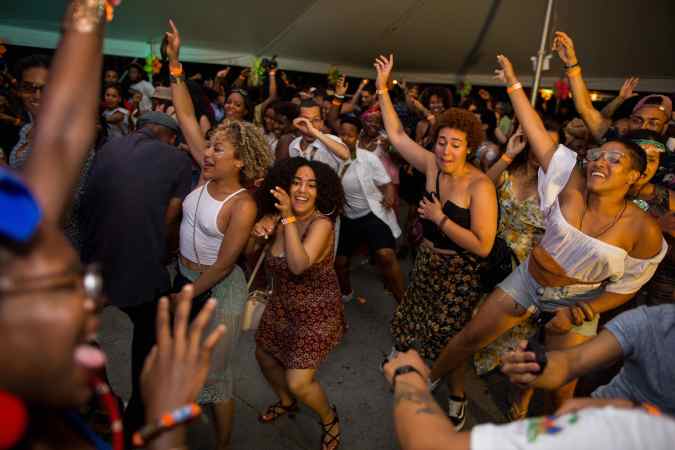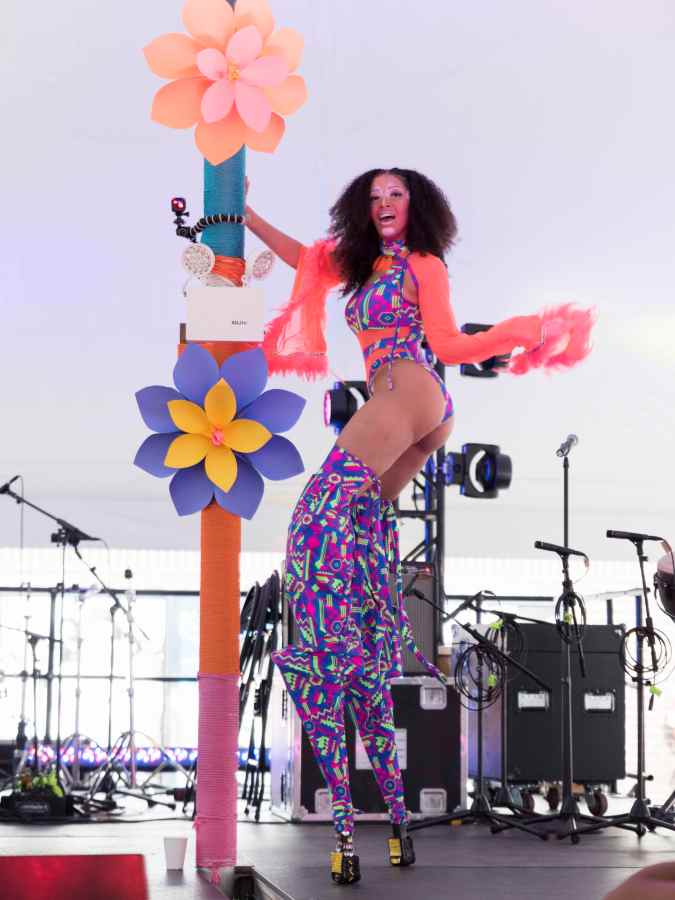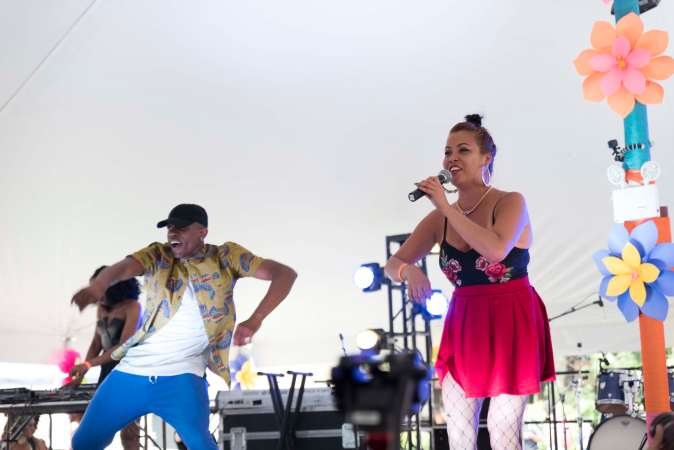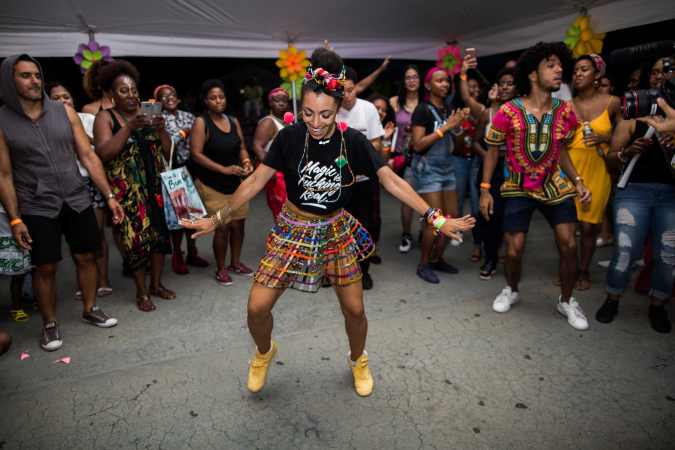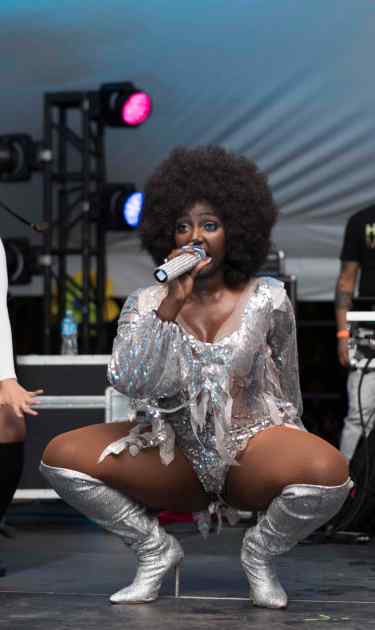If we had to choose one word to describe New York’s Afro-Latino Festival this year, it would be diasporadical. The fest connects the African diaspora in revolutionary ways that defy stereotypes, male hegemony, and respectability politics all at once. The weekend featured panels at Harlem’s Schomburg Center for Research in Black Culture and an awards ceremony celebrating Afro-Latina leaders on the first day. Performances on the second day at the Bed-Stuy Restoration Plaza drove home the theme of “A Tribute to Women of the Diaspora,” featuring black and femme acts that showcased the diversity of las hijas de la diaspora and pioneers in the music world.
Panels at the Schomburg on day one pushed the conversation towards movement and strategy, with discussions that touched on spirituality, representation, environmental justice, and women’s entrepreneurship. The fest then moved to the Powerhouse Arena in Brooklyn, where leaders like Susana Baca, a key figure in Afro-Peruvian music, culture, and advocacy, were recognized for their achievements.

On the second day, Afro-Boricua rapper Nitty Scott MC drove home the theme of the festival with a line from her song “Las Hijas de la Diaspora,” hopping across the stage and showcasing her lyrical prowess. Every performer made sure we remembered who the space was for; singers like Puerto Rico’s Calma Carmona soothed us with her soulful voice while badass DJ Bembona rocked the crowd behind the boards, selecting both nostalgic beats that took us back to the early days of reggaeton and new tracks from our favorite local NYC artists like Princess Nokia.
Perhaps most importantly, this year’s Afro-Latino Festival underscored the fact that blackness cannot be confined to folklore and culture, with a diverse lineup that showed how women of the diaspora embrace multiple expressions of femininity. While performers like Carolina Camacho and Melvis Santa are explicit about their ties to Afro-diasporic rhythms, having la reina del merengue Milly Quezada perform on the same stage illustrated the ways blackness is inherent in all aspects of Dominican culture and Latinidad, even where it’s been historically invisible. The crowd sang along to hits like “Solo Contigo” and “Para Darte Mi Vida,” a moment that was no doubt shared in WhatsApp family groups across the city.


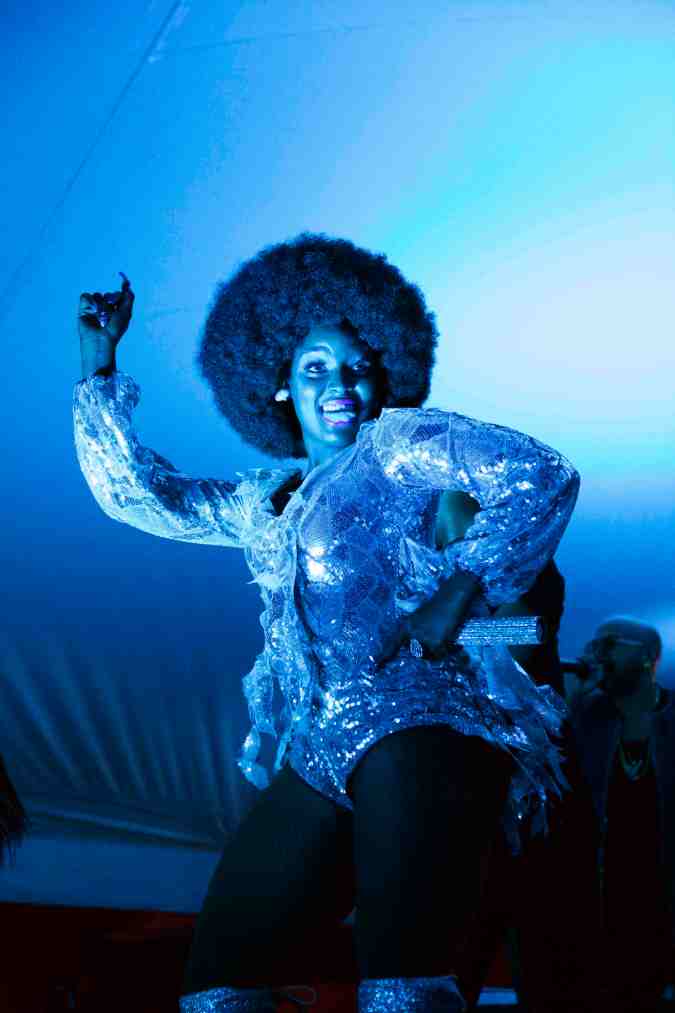
While past headliners like Cultura Profética and Nina Sky may perform Caribbean rhythms and styles, Amara La Negra physically embodies the black experience, and in a society where dark-skinned women are denied humanity and agency over their bodies, her voice is needed both as a singer and as an afro-caribeña. Much like the genre she performs, she’s typically scorned by older generations, due to her fearless sexuality and the way she challenges preconceived notions of women’s empowerment. Her performance also helped shift a formula that continues to restrict Afro-Latino pride to traditional music, acknowledging the contribution of more recent generations, which have brought us dembow, Spanish-language trap, and our beloved but still controversial reggaeton.
The day ended with another reina, this time the queen of soca Allison Hinds hailing from Barbados, joined onstage by dancers her wearing Carnival costume. In the middle of Hinds’ hit “Roll It Gal,” Amara La Negra surprised the audience by appearing on stage to announce that they soon will be collaborating.
Both days of panels and performances felt like a reinvidicación for Afro-diasporic women everywhere. It was a reminder that our shared blackness goes beyond the borders of Latinidad, because as a diaspora, our struggles transcend national boundaries and language barriers.
